 My son was diagnosed bipolar over 4 years ago and has endured the usual issues: communication impairment, mood swings, inconsistent compliance with medications, psychosis, and side effects from pharmaceuticals.
My son was diagnosed bipolar over 4 years ago and has endured the usual issues: communication impairment, mood swings, inconsistent compliance with medications, psychosis, and side effects from pharmaceuticals.
Before his initial diagnosis (and after) he was using “street pot,” which I believe added to his psychosis and difficult behaviors. About once a year this would lead to a forced hospital intervention, usually lasting 2 weeks. It was as if he was over-the-top stoned, disagreeable and disoriented. For him, the hospital is miserable. For me, it was a way for him to return to being compliant with his medications.
But during the last year things have been different. In trying to understand the depth of his condition, I found that his prescriptions included the anti-epileptic (also called an anti-convulsant) medication, Lamictal, for mood-stabilization. I wondered, “If the chemical compounds in cannabis are known to help alleviate seizures, wouldn’t it make sense that this natural remedy could also help bi-polar mood stability?”
So we got a recommendation letter from a doctor who suggested the smokable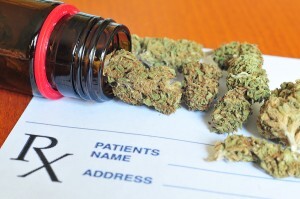 cannabis strain, ACDC, due to its low THC content. From his first puff I could see immediate mood improvements and a contentment that had been missing for quite a while! I’m not kidding. Everything wasn’t perfect, but it was jaw-droppingly better.
cannabis strain, ACDC, due to its low THC content. From his first puff I could see immediate mood improvements and a contentment that had been missing for quite a while! I’m not kidding. Everything wasn’t perfect, but it was jaw-droppingly better.
As he kept using the ACDC, the issue became that my son felt that weed – is weed – is weed. So I had to set about defining some differences so he’d understand that all cannabis is not alike – and all cannabis will not be helpful for him. We needed a more specific definition.
I explained that (1) “street pot” (any strength, different highs, inconsistent standards) differs from (2) “medical marijuana” (great strains, more quality and generally more reliable for people with targeted conditions) which differs from (3) “high-CBD cannabis.”
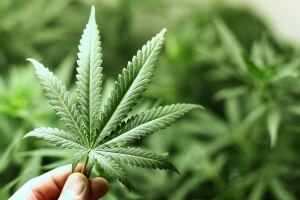 High-CBD cannabis, from my view, should contain a CBD-to-THC ratio of 20:1 or better. The ratio is important! While strains like Harlequin have a 5:2 ratio and Cannatonic is around 1:1, for me I see these in the category of medical marijuana. Compared with most cannabis strains, they are indeed high in CBD. But for bi-polar the 20:1 ratio wasn’t enough to remedy the psychosis – even though it’s excellent for mood stability.
High-CBD cannabis, from my view, should contain a CBD-to-THC ratio of 20:1 or better. The ratio is important! While strains like Harlequin have a 5:2 ratio and Cannatonic is around 1:1, for me I see these in the category of medical marijuana. Compared with most cannabis strains, they are indeed high in CBD. But for bi-polar the 20:1 ratio wasn’t enough to remedy the psychosis – even though it’s excellent for mood stability.
So I became a research-aholic and kept searching for a better remedy with a higher CBD ratio. My research led me to a high-CBD hemp oil which “took the edge off” of his condition even more effectively. We added in a hemp oil that has a 30:1 ratio of CBD-to-THC. With only 0.3% THC, the label states that it is a “dietary supplement’ and therefore could be shipped to all 50 states.
Getting the dose right is a “try it and see how it goes” situation. We started by using 1/4 teaspoon of the 30:1 hemp oil, twice a day = 1/2 teaspoon total = 123 mg of CBD per day for very helpful mood stability. In three days we began to see an improvement.
Over a period of a couple months we gradually increased the dose up to 1/2 teaspoon of 30:1 hemp oil twice a day = 1 teaspoon total = 246 mg of CBD per day, and the improvement was even better.
Hemp oil products differ, so if you try this, be sure you’re aiming for at least a 20:1 ratio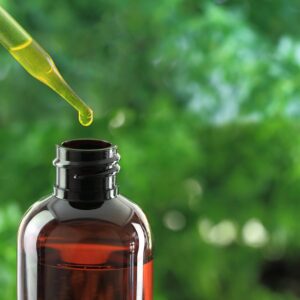 of CBD-to-THC or better. Some products also have more oil and less hemp, so the potency will vary. A little milligram math may be required.
of CBD-to-THC or better. Some products also have more oil and less hemp, so the potency will vary. A little milligram math may be required.
Everyone has individual physical needs – don’t rush this. Give it 3-days to 3-weeks for a full exploration of its effects.
There is no doubt cannabis has changed our family for the better. Other people with bi-polar who have less-severe conditions may be able to take advantage of a wider selection of strains. But proceed carefully. Don’t take chances with a lower CBD ratio if someone you love has a more severe condition.
Just going to any dispensary is a “buyer beware” situation. I called several places until I reached someone who knew about CBD ratios. I emphasized that “street pot” and (the broadly termed) “medical marijuana” was not what we were shopping for. The high-CBD cannabis we wanted would help keep my son out of the hospital. I did not hesitate to have this discussion with the dispensary!
The clinical studies I’ve seen coincide with what I’ve found. For mood stability and lessening mental psychosis, the best cannabis product(s) should contain very low THC. Including a pharmaceutical-grade pure CBD product can be another consideration.
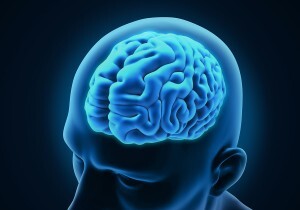 THC desensitizes the brain cell receptors, according to professor of pharmacology, Dr. Daniele Piomelli, at University of California – Irvine. His ground breaking study in 2012 led by Markus Leweke of the University of Cologne in Germany, showed that cannabidiol (CBD) was just as effective as the anti-psychotic drug, amisulpride, but the cannabidiol showed no side effects!
THC desensitizes the brain cell receptors, according to professor of pharmacology, Dr. Daniele Piomelli, at University of California – Irvine. His ground breaking study in 2012 led by Markus Leweke of the University of Cologne in Germany, showed that cannabidiol (CBD) was just as effective as the anti-psychotic drug, amisulpride, but the cannabidiol showed no side effects!
Here’s the actual clinical study to print out for your doctor!
http://www.nature.com/tp/journal/v2/n3/full/tp201215a.html
Use caution when exploring any high-CBD remedy. Never suddenly reduce or increase prescribed medications without a doctor’s supervision. Don’t stop taking doctor-prescribed meds just because you feel a new sense of wonderful!
NEVER go off any SSRI (anti-depressant) medication suddenly because that will have devastating effects. Don’t consume grapefruit juice EVER while taking doctor-prescribed depression, anti-psychotic or other mental wellness prescriptions.
Add in a high-CBD remedy to a normal prescription routine and see how you feel. As things improve, see your doctor. Gradual dose adjustments are what Dr. Piomelli recommends.
Be smart. Marijuana is the source of many remedies of the past and future, but THC must be used with great caution when mental illness is in the picture. Here’s a GREAT report with a fabulous color chart displaying cannabidiol and other non-psychoactive chemicals (CBG, CBN, THCV, CBDV etc.). – http://www.advancedholistichealth.org/PDF_Files/cannbiniods%20therapeutic%20chart%20article.pdf
must be used with great caution when mental illness is in the picture. Here’s a GREAT report with a fabulous color chart displaying cannabidiol and other non-psychoactive chemicals (CBG, CBN, THCV, CBDV etc.). – http://www.advancedholistichealth.org/PDF_Files/cannbiniods%20therapeutic%20chart%20article.pdf
For answering your questions about numerous health solutions I recommend the people and resources at United Patients Group. Now if the U.S. government will just get out of the way, there are millions of people who need this natural medicine. Let’s boldly go where the grace of nature has blessed us to go!
– Edwin Mayfield
Disclaimer: The opinions expressed by the guest editor are theirs alone, and do not necessarily reflect the opinions of United Patients Group or any employee thereof. United Patients Group is not responsible for the accuracy of any of the information supplied by the guest editor.
For more information on this topic and more, please join us on May 21st and 22nd at Dominican University for two full days on education. Register today!

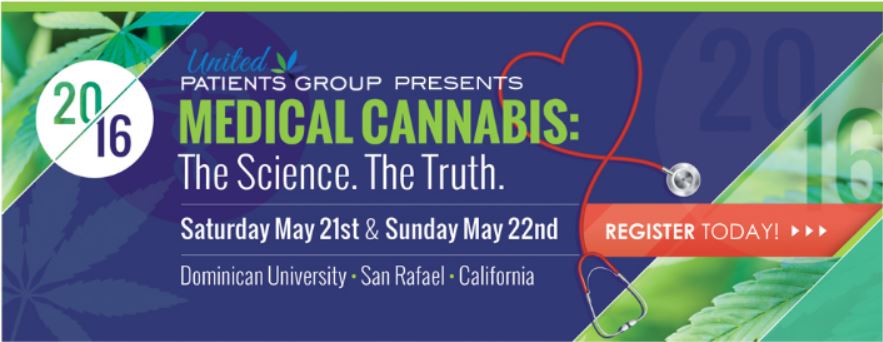
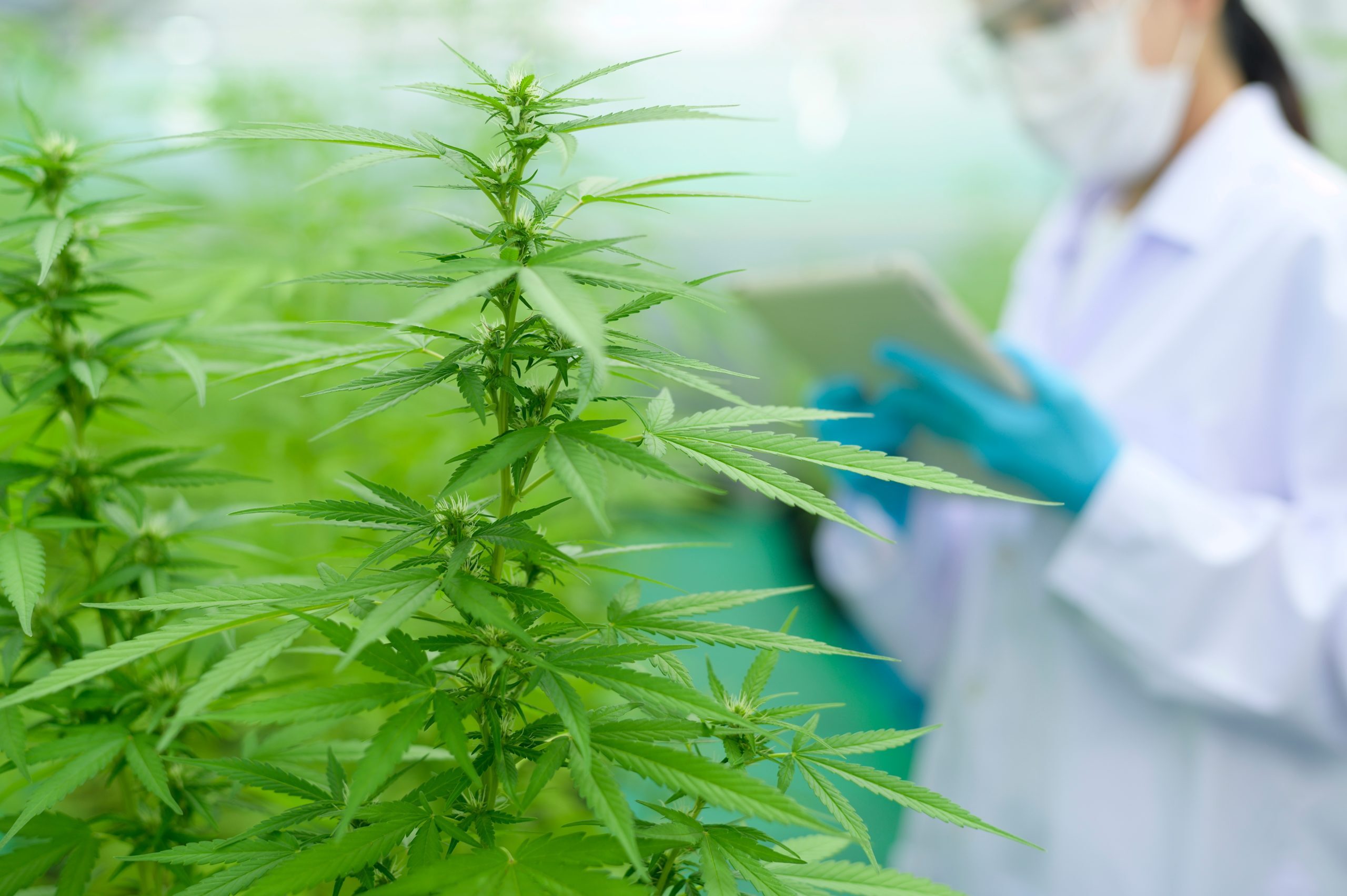

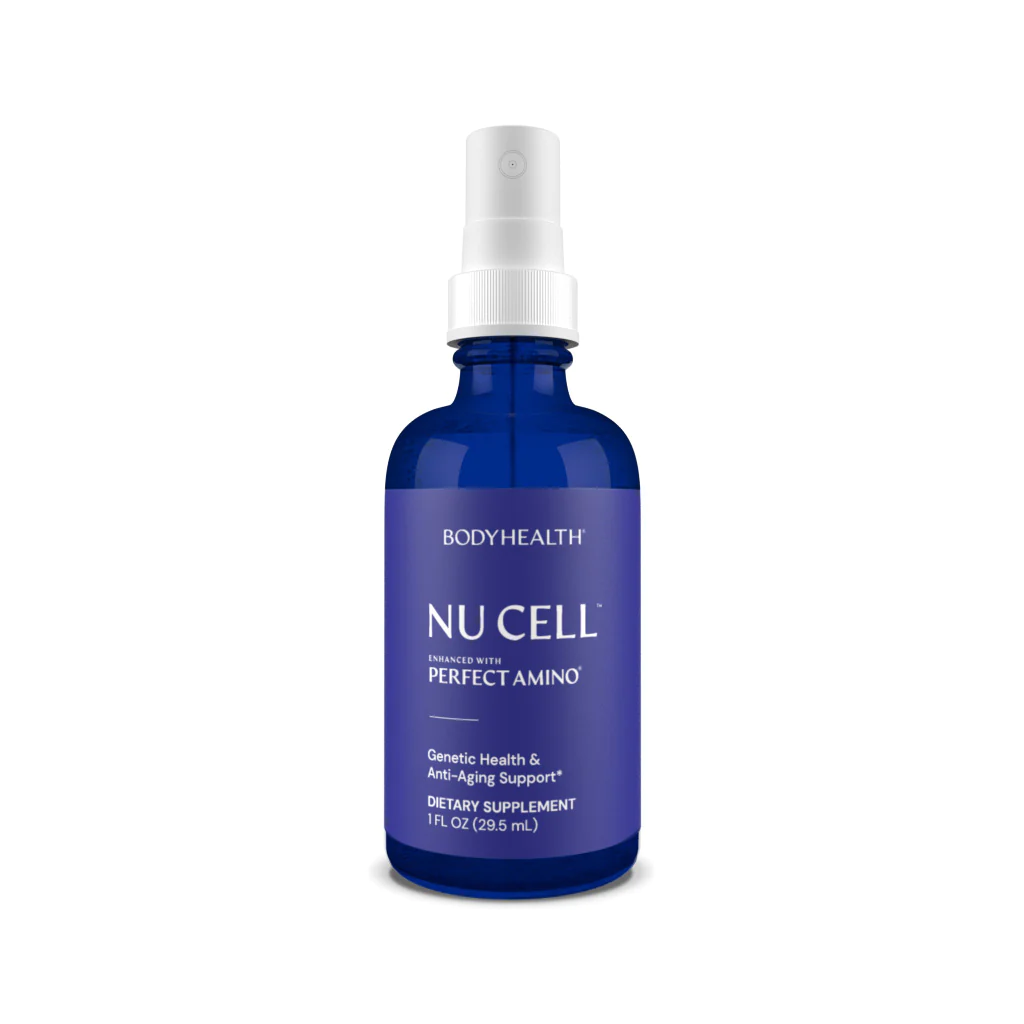
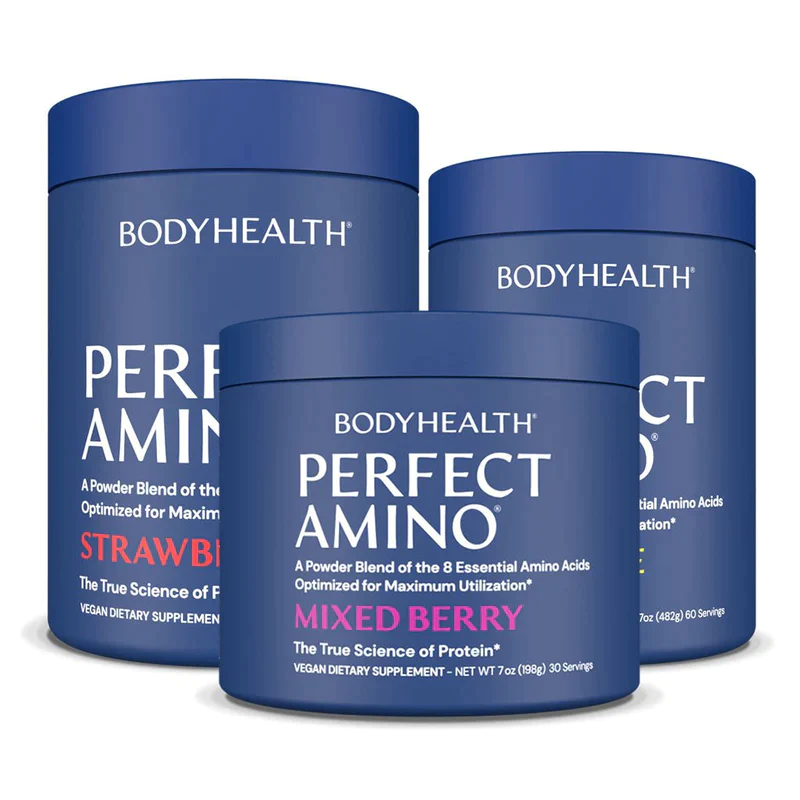
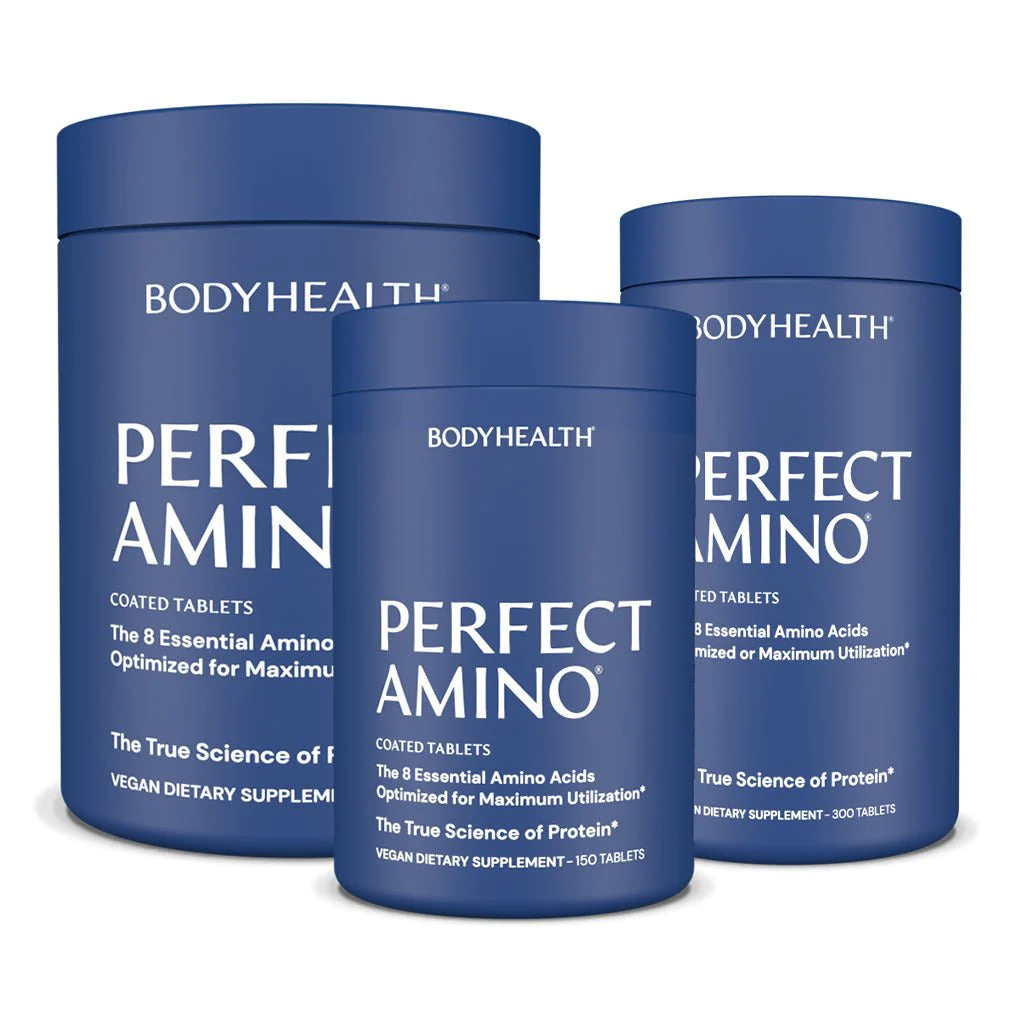
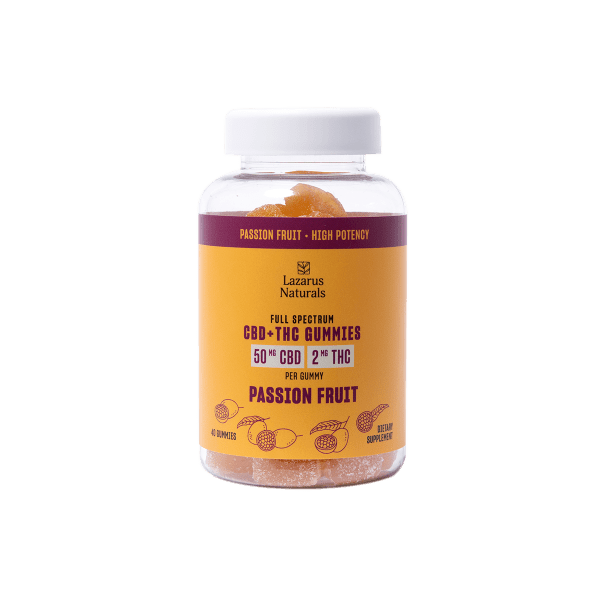
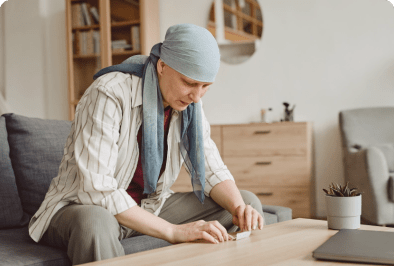
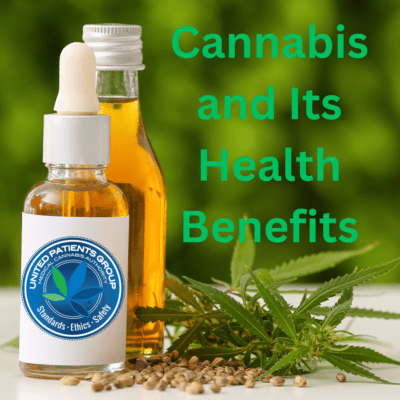
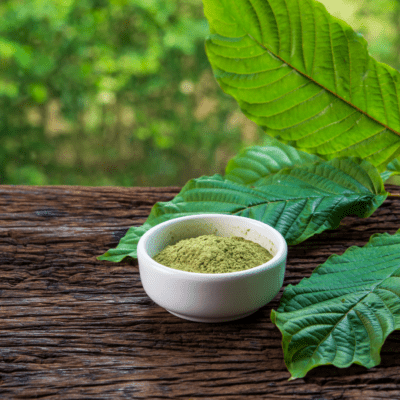
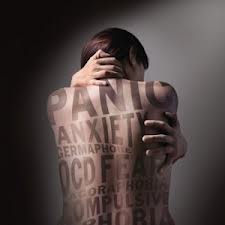
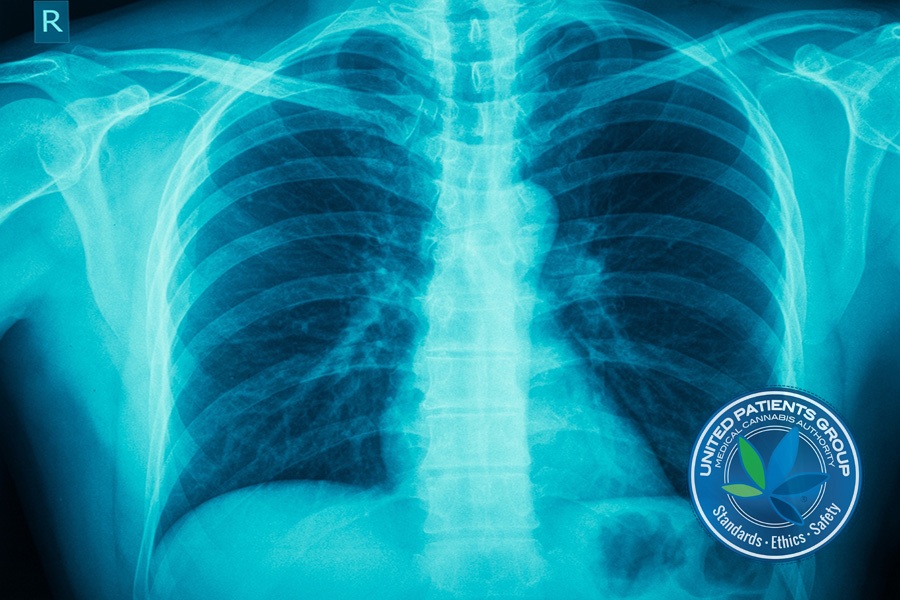
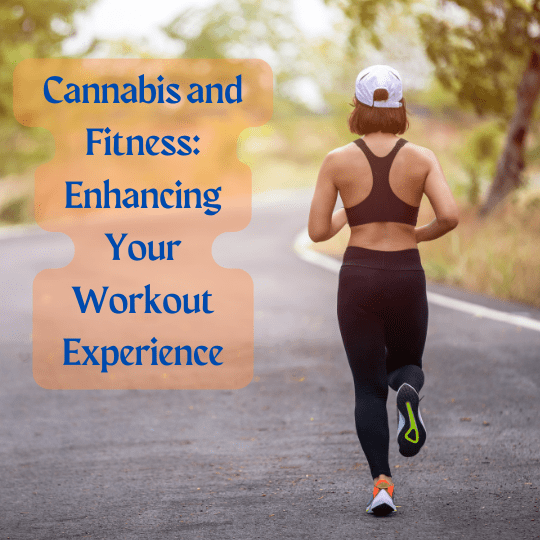

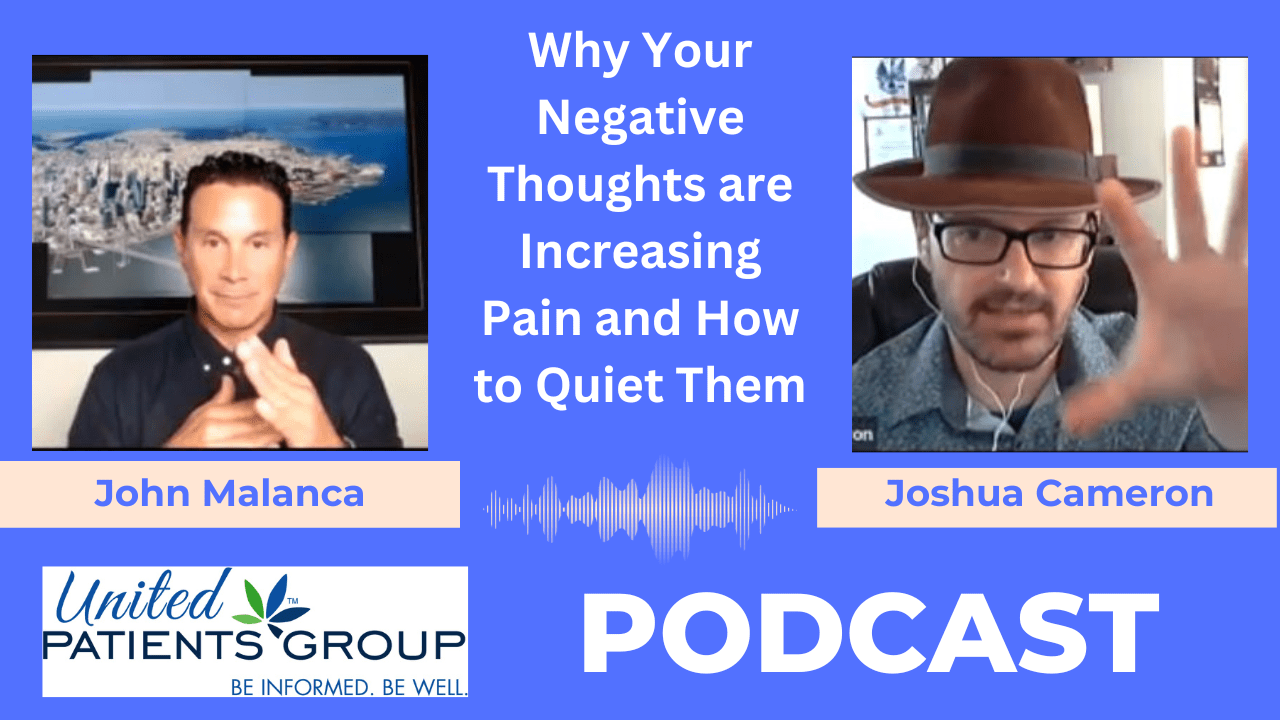
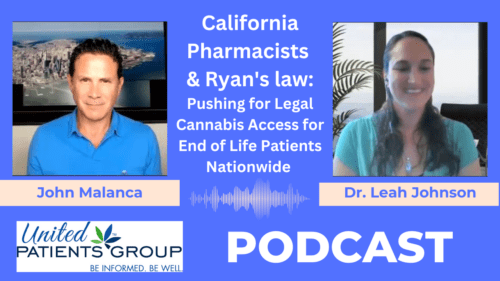
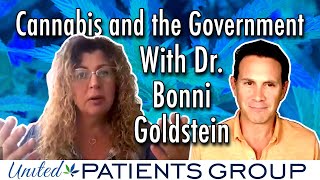
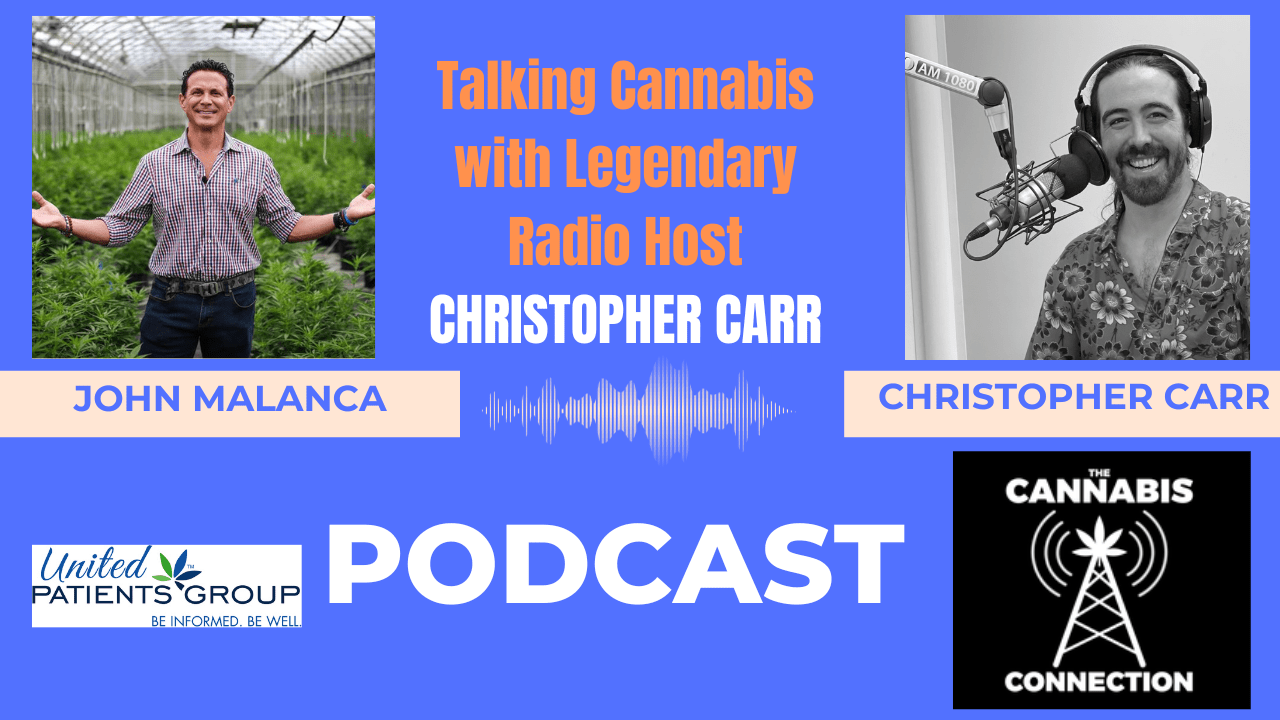
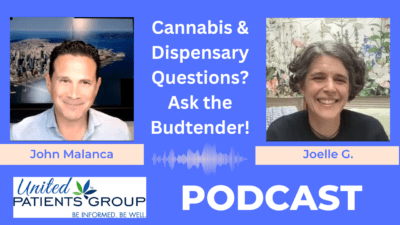
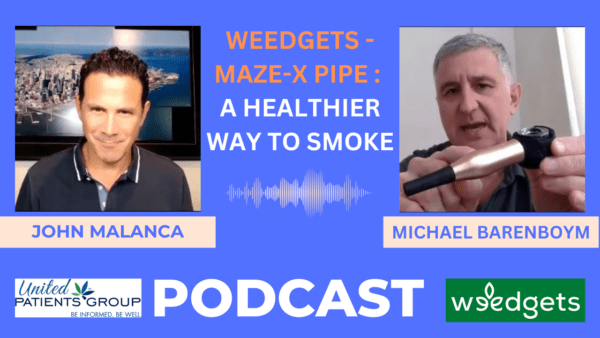


















This is excellent information and corresponds to what we’ve experienced treating patients at our wellness center in Mendocino County. HOWEVER, we believe that whole plant cannabis medicines are much more effective than hemp-based medicines for at least 2 reasons: Hemp is so low in all the critical ingredients that result in the Entourage effect of dynamic interplay between cannabinoids, terpenes, flavanoids and all the wonderful compunds that make up this plant; 2) on has to be very careful that the hemp has not been treated with pesticides, which remain in your body.
Tinctures are a far better delivery system for getting the phytocannabinoids to the cell receptors via the bloodstream than either smoking or edibles. (O’Shaughnessey’s, Winter 2015/16). Take a high CBD, whole plant tincture and swish around in the mouth for awhile before swallowing. The results are wonderful.
This is a great point about high CBD medical marijuana for treatment of seizures and bipolar disorder. The low THC content is important to prevent any increase in psychosis. Its always important to go over your particular medications with your medical marijuana doctors during an evaluation prior to making a treatment plan or getting a medical marijuana card.
I’m a bipolar class I, and I feel good when I smoke pot. I feel relaxed and cool, but I cant convince my psichiatric to allow me to get some, MAYBE BECAUSE ON ITALY IS ILLEGAL.
So sad.
** Thank you, Jude for your response. Your information is excellent too! It’s very interesting that we are part of a new medical “model” consisting of the patients — and a growing group (no pun intended) of dedicated professionals — who are taking significant steps ahead of the pharmaceutical-industrial establishment. It’s so encouraging to know more, like you, who are dedicated to true personal health and well-being.
** Thank you, Medical Marijuana Card Doctor — your point is very important. The proper treatment evaluation and planning is key to excellent remedies. There needs to be more regulation and education about the effects of cannabis to balance all the excitement about the discoveries we’re witnessing. Nearly every-other-person I encounter knows someone with migraines, PTSD, pain, inflammation, depression, mental conditions – and with the “new strains gone wild” out there – careful guidance will be a major factor in safe dissemination of products, advice and “good press.”
** Facundo, thank you for your comment, and I’m sorry that the “system” in Italy is frustrating you. Keep the faith. This site is a great place to learn, so you are prepared for good solutions that WILL come to you eventually. When you feel frustrated, please know that people like me and the people on this website care. We are looking for every way to help you and help others like you find relief. I have conversations every week that encourage ME about the progress, the compassion, and the loving work being done to make a difference in your life. I appreciate your comment. It’s my hope that my son will do what YOU are doing – research, communicate, express, reach out. You give ME hope. Thank you.
Thank you for this article…I too am a research-aholic in regards to my partners BP 1 disorder . I am really happy to hear that cbd oil, and/or the acdc are effective. Can i ask, when you administered the cbd oil were regular drugs /meds )eg seroquel or other,) being used as I have read cbd oil can act like grapefruit with medication ( liver enzyme issue) ….thus effecting the amount/dose /levels ; so wondering if your experience involved changing over slowly etc. and how you may have done this… We here in Australia have no medical MJ at all and no real experience with cbd etc, so I am really keen to speak with real people who have done this successfully. The doctors here are uneducated around this also. Thank you for the dosing info, it is a good place to start, having some real info. Would appreciate some more insights from you, many thanks and all the best, Katy
You may want to change the title. Schizophrenia is a thought disorder. Bipolar is a mood disorder. When manic, the patient can have psychotic features. This is different that schizophrenia.
The title should read, “A Father’s Perspective: Clinical Studies Show High-CBD Cannabis Provides Mood Stabilization for Bipolar Disorder”
Stephen,
I agree as my daughter has bi-polar. This was a submitted guest blog. I appreciate your input!
Sincerely,
~Corinne (Founder)
Hi Edwin,
I have been struggling with Bipolar disorder for just about 20 years now, with varying degrees of success in treatment. I recently came across CBD oil and it’s beneficial affects on those suffering with Bipolar disorder, and after reading your article and doing a bit of additional research on the drug, have decided to add it in to my treatment program in combination with the other psychiatric medications I am currently prescribed.
I started using a low dosage just to see what the initial effects would be on my mental state, and am very impressed with the way it calms my anxiety, soothes my “bipolar rage” to a point where I no longer have problems managing my anger, greatly reduces suicidal ideation, and also helps to make me much more sociable with my peers.
I would ask (if your willing to share), if your son has been able to reduce the dosage of some of his medications due to the addition of CBD oil in his treatment plan, or even eliminate some medications altogether.
I am considering asking my psychiatrist to lower the dosage of my Depakote due to the problems I have with weight gain and appetite control and have printed off the clinical study you sourced in the article, but am highly cautious about doing this due to the potential consequences that decreasing dosages could have. So I am taking any additional advice you might have to offer into consideration as well before making this decision.
Thank you for taking the time to write this article.
Jon
Hello Katy,
I’m sorry it’s taken so long for me to respond, I hope you’re still researching!
You asked, “when you administered the cbd oil were regular drugs /meds (eg. seroquel or other) being used?” Answer: Yes, we started CBD when he was taking Lamictal (anticonvulsant), Lexapro (antidepressant) and Seroquel (another antidepressant that can help reduce psychosis… kind of). Always be cautious or avoid grapefruit altogether when using psych meds. We didn’t find any “grapefruit-like” alteration to the potency/dose results when we introduced CBD. The clinical studies that I’ve read don’t warn of contraindications with CBD and other medications. THC (dronabinol) is shown to have contraindications with some medicines. https://www.drugs.com/drug_interactions.php
If we get picky about terminology, “medical marijuana” may not lead lead you to CBD-dominant therapeutic hemp resources. Pure CBD products are becoming more available, and I just did a search engine look-up for “is cbd legal in Australia” and found sites that appear to be selling and shipping there. Pure CBD (isolated) is not marijuana :) and may be available. Whether there are advantages or disadvantages to the entourage effect of cannabis (when treating bipolar) is yet to be concretely decided. I don’t rule anything out.
One thing I plan to start doing is adding CBD isolate crystal to things like (oil-based) salad dressing (the crystals dissolve into the oil) and anything (like brownies) that uses melted butter. Just exploring more comprehensive avenues! That and eliminating gluten as much as possible (cerebellum antibodies attack gluten that attaches to brain cells, killing the brain cells). Oh, I guess I want gluten-free brownies! :) More studies on autoimmune disease are examined in detail by Dr. Tom O’Bryan: http://thedr.com and more health tips here: http://bipolarhealthgroup.org/index.php/healthy-brain-support-and-nutrition-care/
Best wishes!
EM
Hello Stephen Martin! You’re right! The title should read, “A Father’s Perspective: Clinical Studies Show High-CBD Cannabis Provides Mood Stabilization for Bipolar Disorder”
My son went from being diagnosed bipolar to schizophrenic, so in order to perhaps “capture” a larger search criteria audience, I added in “Schizophrenia.”
A note (you may already know) about one of the roughest aspects of mental illness: up to 90% of those with schizophrenia and around 50% of bipolar have a condition called anosognosia. This is the patient’s TOTAL lack of awareness about their condition, and it’s awful. http://bipolarhealthgroup.org/index.php/helping-bipolar-accept-medication-treatment/
Since the person afflicted has no idea anything is wrong, they completely reject taking medications. It makes no sense to them why everyone is forcing them to take drugs (feel they) they don’t need. This affects more people than the horrible side effects of the pharma drugs as a cause for non-compliance.
Unfortunately, if the patient associates a cannabis remedy with “being treated for mental illness,” very possibly they will also reject taking a cannabis tincture or capsule, even though cannabinoids have so many benefits and are amazing “optimizing supplements.” No wonder the stigma of mental illness is so horrifying to many of those who have it. They feel the world has conspired against them for no good reason. We see the problem clearly. They think we ARE the problem. :( If I find anything of help, I’ll be back! Meanwhile the above link with the article inspired by Dr. Xavier Amador is very important for any family member supporting a person who needs mental well-being. http://dramador.com
Thank you for chiming in! :)
Hello Jon! Thank you for your response, and congratulations on your success with CBD oil! You are a trailblazer!
Depakote is another anticonvulsant, as is CBD (I’m stating that from my experience, without the blessing of the FDA). In my opinion, you will have continued success by including CBD in your wellbeing routine. In fact, I did take my son off of his pharma meds, especially after increasing the doses of CBD oil and isolated CBD in a powder form. Taking him off lexapro and lamictal was easily handled by 150 – 250 mg. of CBD per day. Going off of Seroquel required more CBD, but the results were great. UNTIL he really took charge of his (25-year old) adult rights and stopped all therapies due to the anosognosia ( http://dramador.com ) that goes along with schizophrenia. If you are actively seeking help and natural stabilization, you are on the right track!
Just remember, cannabis therapies for mental health are not like an antibiotic, where once you finish the prescribed amount of antibiotic, the infection goes away. Cannabis oil and isolated CBD crystal therapies are more like insulin to diabetics. It’s a remedy you want to stick with.
Can the dose of CBD be lessened after some number of years? We don’t know. U.S. Schedule 1 classification stunts U.S. funding and research for long-range cannabis studies. Why is legalizing “marijuana” (bad name) important? It shows the government what the PEOPLE want and helps propel the direction of natural healing that should be readily available to everyone.
There are a lot of clinical studies that you can present to your doctor about cannabinoids. http://bipolarhealthgroup.org/index.php/clinical-studies/ Hopefully your doctor will even look at the materials. Since doctors are mandated to “do no harm,” they often associate cannabidiol with the “dangerous” Schedule 1 classification imposed by the U.S. government, they often will be skeptical (and focused on keeping their medical license). The scientists are WAY AHEAD of the government, even though the Health and Human Resources Department has a medical patent on CBD. http://www.google.com/patents/US6630507 Now there’s a conflict of interest!
If your doctor is less inclined to read a single (original source) studies, here’s a link to 48 REVIEWS (that look at many many studies) that he/she may give more weight to: https://www.ncbi.nlm.nih.gov/pubmed/?term=cannabidiol+schizophrenia+review
I heartily suggest following your doctor’s guidance when withdrawing from any prescription medication. Go very very slowly when reducing psych meds and antidepressants in particular. VERY slowly, maybe even slower than your doctor suggests, because they sometimes don’t specialize in withdrawal symptoms. Take your time, I think you’ll be pleased with how you feel over time. Cancer may be cured by cannabinoid treatments, and in those cases I would defer to United Patients Group about anti-cancer maintenance recommendations.
But regenerating brain cells takes time but here’s a CBD study that uses the word “neurorestoritive.” That’s HUGE. https://www.ncbi.nlm.nih.gov/pubmed/26556726 Is it possible that cannabinoid therapies can lead to the remission of mental illnesses (maybe even with a gluten-free diet helping)? Time will tell. Best wishes! :)
EM
Hi Mr. Mayfield,
Can you please provide the name of a company or supplement line that produces a CBD oil with such high ratios as 20:1 or 30:1? I have not found anything like this available but would be so grateful if you could assist to direct me.
Thank you for this information!!
Laura,
There are many companies that carry high CBD products. Much depends on where you live. If you would like to call our offices we can dusciss your possibilities.
Best,
UPG
Thank you for the wonderful article Edwin- it was very informative and helps push CBD/cannabinoids to the forefront of mental illness treatment, where it should be. You seem like an awesome dad!
There was one point I wanted to make that I feel is extremely important. Although the notable negative side effects associated with CBD are nearly non-existant (as we currently know), it does still pose a very real risk in the form of drug contraindications. This is due to CBD’s profound effect on inhibiting the enzymes of the Cytochrome P450 family.
These enzymes are responsible for metabolizing a majority of the pharmaceuticals on the market today, including antipsychotics and antidepressants. It is shown that even a small dose of CBD can temporarily deactivate these P450 enzymes. This is why CBD seems to have a muting or blunting effect on the psychoactivity of THC, when used together. I’ve experienced this first hand with THC, opiates and amphetamines, that when used in conjunction with CBD the ‘highs’ are affected, with lower peaks and seem to go on longer. I believe this is because due to the enzyme suppression. There are elevated blood levels of substances that are metabolized and serve as competitive inhibitors for these very same P450 enzymes. My experience with oxycodone and CBD was extremely unpleasant and made me sick for a few hours.
Because CBD is so great for most ailments and has a reputation for having a low risk profile, its potential for harm goes ignored or completely unnoticed. Before adding CBD to an existing treatment regimen, PLEASE be extremely careful and ensure there will be no harmful interactions between CBD and your current medications, especially with medications that are affected by this Cyctochrome P450 system. Google “CBD cytochrome P450” for more info, here are some links from those results:
https://www.projectcbd.org/article/cbd-drug-interactions-role-cytochrome-p450
https://www.ncbi.nlm.nih.gov/m/pubmed/21356216/
https://cbdoilreview.org/cbd-cannabidiol/cbd-p-450-enzyme/
Hello K,
I very much appreciate your post which illuminates a VERY valid point. There is much to learn about the way CBD and other cannabinoids interact with pharma medications and our digestive system. I do not dispute anything you’ve brought up, and I appreciate the sources you provided. This will help me expand my research and I will integrate your insights into my discussions with others.
That being said, and with my comments being largely from personal experience, let me add this:
My elderly mother has crohn’s disease and takes norco (an opioid) every day – not for pain, but for the side-effect that it slows her digestive process and lessens her trips to the restroom. Since introducing a full-plant hemp oil into her daily supplementation, neither I nor her doctor have noticed any negative changes. She used antibiotics at one point as well, and didn’t suffer any reaction. Her feeling about hemp oil is positive, so far. But this ONE example is NOT a reason to blindly jump into CBD/cannabis therapy when other drugs are in play. Being cautious is wise!
My son took the same full-plant hemp oil while using lexapro (anti-depressant), lamictal (anti-convulsant) and seroquel (anti-psychotic/depressant) and only got better with time. Again, this ONE example is NOT a reason to jump into CBD/cannabinoid supplementation. My feeling is that more University studies are needed – and we will see more studies if the U.S. government can see it’s way to take cannabis OFF the Schedule 1 dangerous drug list.
Drugs.com has a page where we can type in the name(s) of drugs to see what interactions might surface – but that website does not contain cannabidiol in its database. https://www.drugs.com/drug_interactions.php
Webmd.com states that up to 300 mg of CBD daily have been used safely for up to 6 months, and 1200-1500 mg daily is stated as safe for up to 4 weeks. While that particular website that says no interactions are shown yet, it also states that CBD may worsen muscle tremors in patients with Parkinson’s.
http://www.webmd.com/vitamins-supplements/ingredientmono-1439-cannabidiol.aspx?activeingredientid=1439&activeingredientname=cannabidiol
My family and some friends have also tried pure pharmaceutical-grade CBD with no THC in a water-soluble form. We all had excellent results. NOTE: We got this CBD directly from a major manufacturer, not just any online store. Beware of claims about water soluble CBD.
CBD alone is not water soluble, it must be go through a process, perhaps similar to chelated mineral supplements, that have an electrical charge that is more “friendly” to absorption in the intestinal environment. Wikipedia states, “metal-amino acid chelates … enhance mineral absorption.”
https://en.wikipedia.org/wiki/Chelation
When I met with Dr. Daniele Piomelli, co-author of the wonderful study utilizing CBD as an anti-psychotic, he stressed, “Don’t use too much CBD at first and don’t increase the dose too quickly.” In other words, start low and go slow.
http://www.nature.com/tp/journal/v2/n3/full/tp201215a.html
It’s smart for us all to continue exchanging information about cannabinoid therapies. Thank you again for your helpful comment.
Best,
EM
Hello Edwin – I am like your son in that I was diagnosed bipolar. I am relatively symptom free for the entire year and then I will suffer a severe manic episode with psychotic features that requires hospitalization. For the past 7 years I have gone off the medication in search of alternate therapies. This time around, I’m thinking of trying CBD. I have started smoking hemp CBD oil in a vape pen and after reading this article I am interested in taking CBD capsules. I was thinking of taking CBD capsules year round for the benefits and taking antipsychotic medication in December (I have had my manic episode in January the past two years) and wean off in march. Any thoughts on how to determine how much CBD to take? I’m also interested in hearing how much it took to prevent your son’s psychotic episodes…
Hello Ken,
Thank you for sharing your comment. I applaud your efforts to be antipsychotic-med-free, and I heartily suggest working with a doctor who is reasonably in-sync with the clinical studies around cannabinoids and CBD in particular.
While I can imagine that CBD vaping could take the edge off, it’s my feeling that you’ll need more CBD to keep manic episodes down to a minimum. The Leweke-Piomelli study in 2012 utilized 800mg. of CBD per day. They started at 200mg./day for several days, then went to 400mg./day for several days, then the same gradual increase to 600 – then finally 800mg. daily (200mg. 4X/day). Given that this was only a 30-day study, they increased the CBD faster than I would recommend. You really want to find the least amount that provides the optimum results.
http://healthland.time.com/2012/05/30/marijuana-compound-treats-schizophrenia-with-few-side-effects-clinical-trial/
My family didn’t have any guidance starting this process, so we used “trial and error.” Over a period of a year we went from 120mg./day, all the way to 650mg./day. I suggest administering your serving twice per day at a minimum. For my son, 250mg. per day really helped, but at 650mg. per day it was amazing! Anything in-between could possibly work for you. Consistency is a VERY important aspect of taking CBD. I’ve taken a (U.S.-made) hemp oil for over two years and my most recent yearly physical was the best I’ve had in 10 years.
You also may be dealing with a seasonal condition. Perhaps get a blood test to see if your vitamin D levels (or other nutrients) drop when there’s less sunshine in winter. Ask a good nutritionist about omega-3’s, B vitamins, and how a low-carb diet can help reduce brain inflammation. A tryptophan-rich diet can help people susceptible to depression (bring on the eggs, nuts, seeds, cheese, chicken, turkey, fish…). Skip the beans, cashews, lentils and peanuts – they contain lectin which can reduce energy and mood!
https://bebrainfit.com/brain-inflammation-depression/
[Effect of diet on serotonergic neurotransmission in depression. https://www.ncbi.nlm.nih.gov/pubmed/23306210%5D
https://www.healthaliciousness.com/articles/high-tryptophan-foods.php
http://bipolarhealthgroup.org/index.php/healthy-brain-support-and-nutrition-care/
Also, several new studies point to the gluten in wheat as a potential aggravator of mood, brain fog, inflammation, leaky gut etc. Maintaining good bacterial for good gut health is being looked at as a KEY to mental well-being. And we’re not just talking celiac, crohn’s disease etc. We’re talking a new clinical category, “non-celiac gluten sensitivity.” You may want to consider getting off grains in the winter. Pasta may not be a “comfort food” for anyone in the long run.
[Mood disorders and non-celiac gluten sensitivity. https://www.ncbi.nlm.nih.gov/pubmed/27647538%5D
https://www.ncbi.nlm.nih.gov/pmc/articles/PMC4809873/pdf/fnhum-10-00130.pdf
http://www.psychiatriapolska.pl/uploads/images/PP_4_2016/ENGver747KarakulaJuchnowicz_PsychiatrPol2016v50i4.pdf
http://bipolarhealthgroup.org/index.php/does-gluten-play-a-role-in-mood-disorders/
I can’t direct you to a specific CBD capsule manufacturer, but if you scan the internet there are several choices. Be sure any cannabinoid product is tested for purity, consistency, true potency, lack of pesticides and mold… Be sure the company is transparent about their batch results and quality control. I would be concerned, for instance, if a hemp source was Chinese, simply because soil purity standards aren’t as rigorous as U.S. and European sources. If you carefully utilize a good CBD product, healthy diet, exercise and medical insights, things should look up for you!
Best regards,
EM
Hello Edwin,
I also experience a manic episode once per year that results in a forced hospitalization. I am relatively asymptomatic the rest of the year, so I get off my medication due to the side effects. I started vaping CBD but after reading the article and comments I am thinking it would be best if I started on 150-250mg pills. I was wondering how you learned how to dose this stuff? I am not sure where to turn for guidance.
Hello Ken,
I am so sorry it’s taken so long to reply, and I hope you’re well – hospitalizations are a serious experience. As far as dosing, we learn by trial-and-adjustment — the same way as doctors! It’s just that they have a “head start” with the knowledge they have in their particular field.
To my knowledge, there are no 150-250mg. CBD pills (I could be mistaken). That would be way to much to start with, anyway! The German clinical study in 2012 (Leweke, Piomelli et al.) started at 200 mg./day to treat a group of patients with schizophrenia — but that was pharmaceutical grade CBD with no THC – and under controlled conditions. Follow the golden dosage rule: “Start LOW and go SLOW” especially if you’re not having numerous bipolar manic episodes over a spread of 2-3 months. CBD is clinically shown as safe up to 1,500mg./day but DO NOT go there!!
https://www.ncbi.nlm.nih.gov/pmc/articles/PMC4707667/pdf/nihms578159.pdf
NEVER EVER stop any prescribed medications when you pursue therapeutic hemp remedies. Always ADD a cannabis solution into your normal routine. Use CBD / hemp oil like a super vitamin! Consistency is key. When and if you reduce any medications, consult your doctor and get off meds VERY VERY slowly — maybe ever slower than the Dr. recommends. If your doctor wants to see clinical reviews on cannabidiol and mental wellbeing,
start here: http://bipolarhealthgroup.org/index.php/clinical-studies/
and here: https://www.ncbi.nlm.nih.gov/pubmed/?term=cannabidiol+schizophrenia+review
Start out somewhere around 50-150mg./day. Use that for 1-2 weeks and see how you feel. After that, if you want more relief, go to 100mg. twice a day, or a little more if you want. After a week or two, go up another 50-100mg./day. For best results split your total quality into 2 or 3 administrations each day.
But NOTE: some manufactures, in order to comply with U.S. law, must list the total cannabinoids in mg. versus the total CBD per serving. This is for them to comply with dietary supplement regulations. Pure CBD in oil can’t be considered a dietary supplement – only full plant hemp extract. IMPORTANT: That means the label will list (for example) 85mg. of hemp extract per serving — but 50mg. of that is the amount of CBD you get in the serving. Document how much you’re taking and write down how it’s working for you.
Depending on your state, you can get either full plant or CBD-only, but be careful of different state laws! (In Utah you must have a neurologist fill out a form indicating to the state that the Dr. feels the patient “may benefit from the use of hemp extract.” https://en.wikipedia.org/wiki/Cannabidiol
Regarding CBD oil or full plant hemp extract capsules: You’ll need a lot of capsules to get as much benefit as you would with a sublingual oil which is absorbed orally via the gums. You get better absorption orally than through stomach digestion. Water soluble CBD is available but “buyer beware” because some products are known to not be truly water soluble. Water soluble absorbs through the stomach and is very bio-available but the product must be shown to be tested, certified and not mixed in with a ton of some other dietary supplement that could possibly cause problems if you try to get a lot of CBD as your goal.
Thank you for posting your comment, and again my apologies for the delay in response. You’re definitely on the right website!!
EM
It was so amazing to see the difference cbd oil made with my adult son in so short a time. His schizophrenia interrupts his ability to connect with people and causes lapses in his language comprehension skills, both with understanding what others are saying, and with being able to arrange his own words into sentences. After a few days using cbd oil, he was more social and able to laugh, smile, and chat with us. His anxiety levels were noticeably lower after the first dose. The beautiful thing about the product is that he was willing to use it! He is fearful/paranoid about using other traditional looking pills because of negative experiences with medical doctors.
Hello Mustain,
Thank you, and I apologize to you as well for the delay in my response. I’ve seen exactly the same positive results that you have seen! Better communication, less anxiety, more consistent sleep patterns, and a happier, ”safer” feeling throughout the family. Your example is inspiring because hearing success stories about cannabinoid remedies encourage others to “give it a try.”
In your case if your son is willing to take anything, especially CBD-dominant remedies, he is WAY ahead of the game. In the majority of cases, people with a mental disorder have NO IDEA that anything is wrong with them, making it harder for them to retain a treatment plan.
http://bipolarhealthgroup.org/index.php/helping-bipolar-accept-medication-treatment/
Your son’s prognosis is good, so long as he stays consistent with the cannabinoid remedy! Pharmaceutical medications for bipolar or schizophrenia are not known to actually help rebuild and protect the brain cells, even though they may help re-establish brain circuit connections (brain plasticity). But look at the U.S. medical patent on cannabinoids like CBD as neuroprotectant! Share THAT with the doctors!!
http://www.google.com/patents/US6630507
Also look into taking wheat out of the family diet. There are studies looking into non-celiac gluten sensitivity impacting mood instability and brain fog. Several studies suggest that symptoms associated with schizophrenia were minimized when gluten was excluded from patients’ diets.
https://www.ncbi.nlm.nih.gov/pubmed/28393621
Schizophrenia patients may have a dysfunction of the blood-brain barrier. Cow’s milk casein and gluten contained in cereals, may be linked with elevated level of antibodies in the brain.
http://psychiatriapolska.pl/uploads/images/PP_4_2016/ENGver747KarakulaJuchnowicz_PsychiatrPol2016v50i4.pdf
2016 clinical paper states that bread releases opioid-like compounds, capable of causing disruption of ideal brain functioning.
https://www.ncbi.nlm.nih.gov/pmc/articles/PMC4809873/
Mental wellbeing is not like an infection that goes away with one batch of antibiotics. Rather, it’s closer to the way people with diabetes need to maintain a daily treatment wellness solution. Stick with it! Stay in formed! Thanks again!
All the best,
EM
Hello Edwin,
I was diagnosed with Bipolar II when I was 26. I am now 49, and currently on Lithium, Lamictal, Cipralex (Lexapro?) and Abilify (anti-psychotic). I am desperate to try a CBD product, due to persistent anxiety, flat mood and lethargy. Someone told me that I would have to use a product that includes THC, or it won’t work. I’m very new to this and want to try and make sure I try the right thing. I would really appreciate some input, please. Thank you very much.
Good day Edwin. I am nearly 50 and was diagnosed with Bipolar II when I was 26. I currently take Lithium, Cipralex, Lamictin and Abilify. I get various side-effects, the most worrying of which are anxiety and severe sleepiness. I have fallen asleep behind the wheel numerous times . I would like to make the switch to CBD oil but don’t know if there is a certain type I should look for. I was told by a holistic clinic that I need THC to be present, otherwise I won’t get results. Please shed any light you can on this. I would so appreciate your input. Thanks, Allison
Hello Allison,
I’m so sorry it’s taken me a long time to get here to reply to your post. I’m really glad you did.
I’m sorry you’re suffering with this condition, and I applaud your bravery. I’m not surprised that you are going through a difficult time with all those mediations. The side effects you are experiencing are somewhat typical. Many many people have to “change-up” the “cocktail” to get the best results. Even then, as time goes on, folks have to change the medications because they stop being effective. That’s common. My son took lamictal and lexapro (cipralex) too, and our results from a CBD-dominant supplement was excellent. But be careful!
1) Lithium is often effective, but long term use can lead to kidney problems. Never reduce any prescription medications without your doctor’s guidance. Changing meds should be VERY VERY gradual, and maybe even slower than the doctor recommends.
2) Lamictal is an anticonvulsant that is used for mood stabilization. I’m not a doctor but what I clearly saw was my son’s mood, sleep, communication and general wellbeing was greatly helped by the CBD-dominant therapies we used. After things get RELIABLY better, then consult your *doctor* for the proper way to reduce any pharma meds.
3) Abilify can produce the usual side effects. But DO NOT change your dosage without your doctor’s directions.
4) Cipralex (Escitalopram or Lexapro) is a Selective Serotonin Reuptake Inhibitor (SSRI) which means it causes brain cells to hang on to “happy” brain chemicals (serotonin) longer than normal. A CBD-dominant solution can help, but you want to add it into your routine. Think of CBD as a super vitamin – not a replacement! Don’t stop any pharma meds without consulting your doctor!
The good news is that it’s possible to use fewer pharmaceutical drugs in time if you get good results from a CBD-dominant solution. I DO NOT THINK THAT YOU MUST HAVE THC PRESENT IN ORDER TO GET RESULTS FROM CBD. I emphasize this because THC, while wonderful in treating cancer, Tourette syndrome, pain and other conditions, is not a requirement for CBD to help you. Read Mustain’s comment above.
I can’t name a brand here, but just start with a full-plant hemp extract from the most reliable company you can find. A hemp product must be made from any part of cannabis that contains 0.3% or less THC. A CBD-only product may not be recognized in your state as a “dietary supplement” but a full-plant hemp extract is. This means you won’t need a medical cannabis “card” in order to have it shipped to you.
An advanced-potency product may, for example, have 85mg. of hemp extract (per serving) suspended in a good olive oil or MCT coconut oil, and there will be 50mg. of CBD in that serving. Often a serving is described as 1 mL. (one milliliter). One mL. = 1/5 teaspoon. The milli-Liter has an “L” for Liquid! The milli-Gram has a “G” for active inGredient. Start with 50mg. per day and see how it works for you. Don’t change your meds. If you want more relief after 3-4 days, increase to 100mg. CBD per day. Stick with that for 4-10 days or so. You be the judge. After a week or two, if you’re not feeling enough improvement, go up 50mg. per day, and maybe split this amount into two administrations – a daytime dose and a nighttime dose.
Generally, in an 85mg. full-plant hemp extract, 50mg. will be CBD and 1.8mg. will be THC. I’m not a doctor, but in my experience, that will be a safe ratio for you. Adding more pure CBD to that is up to you, and may help. We are pioneers here. In the future, CBD will become, as Ethan Russo stated (at a UPG conference), “CBD is the mental wellbeing therapy of the future.”
A quick note about drowsiness, CBD is also clinically known as a “wake-promoting agent.” No caffeine buzz for sure… but while it’s helpful for sleep, it’s great for focus and mental clarity!
https://www.ncbi.nlm.nih.gov/pmc/articles/PMC4023456/
All the best on your journey and thank you again for your comment here!
EM
I was diagnosed with Schizoaffective Disorder in 2015, a combination of Schizophrenia and Bipolar.
Hello Kijana,
Thank you for your post. We’re getting quite a few responses and helpful discussions here!
I moderate a bipolar support group, including several members who have attended for over 15 years. This folks remind me that there is a wide “spectrum” of disorders, and we’ve agreed that overlapping symptoms mean the categories are not always clear-cut. My son was first diagnosed Schizoaffective and over time isn’t presenting typical bipolar mood swings.
The good news for you is that if you have an *awareness* that you experience some difficulties, you have a greater chance of doing well. Since you are on this site, you’re looking in the right place for wellbeing information – and many people in the bipolar/schizophrenia spectrum *don’t* look for wellbeing solutions. Largely this is because of a condition called anosognosia.
Anosognosia is “poor insight” — otherwise mis-labeled “denial.” This is when a person cannot detect an invisible disability. The person may easily understand a sprained ankle or allergy, but they have no idea that their mood swings or sleep issues are causing problems. Often, the public is unaware that a patient with anosognosia is NOT trying to be difficult. More compassion and awareness is needed.
Adding a CBD-dominant therapy is a fantastic natural way toward wellbeing. As I’ve mentioned in previous replies, taking a long-term comprehensive approach is best. Over time I saw my son go off medications and do really well on cannabinoid solutions that were low-THC. But it must be a gradual and consistent shift off the prescription medications with doctor’s guidance.
I wish you the very best and thank you for your comment.
EM
My family and I have seen the differences in myself with my schizoaffective disorder, and getting off many medications with your product. It has also created more quality time with my daughter. – John
Hello John,
Thank you for your letting us know about your success story! I love hearing about people who are taking their wellbeing into their own hands – finding the “Sacred Plant” remedies that can make a huge difference in quality of life.
I applaud your journey and I’m so pleased to hear about the increase in quality time with your daughter. This brings inspiration and meaning to the cause of wellness through natural means!
Feel free to keep us posted on your progress, if you desire. You never know who might read your comment and say, “If he can do it, so can I.” Every step COUNTS!
Best wishes,
EM
Thank you, everyone.
I came here in behalf of my daughter, I was diagnosed with Bipolar in 1996. My daughter was finally diagnosed in 2007.
She brought medical marijuana to my attention, just recently. By nature, I am also a medical researcher, which is why I am here: Such a sterling sight of insight, information and generosity. My daughter insists on medical marijuana while on Lithium, Lamictal, and Seroquel. I insist on research spanning accurate and articulate knowledge by way of medical science and personal/familial experience.
She also uses the marijuana for Fibromyalgia, which is an autoimmune disease similar to or, now in consideration as Sjogren’s Syndrome (w/o sicca symptoms) for which I was diagnosed in 2012.
Common ground in family medical history cannot be underestimated in its value as possible predictor and a measurement source for outcome of medical and alternate treatment.
Thank YOU, phenotype,
I agree with you: I came here seeking insights about “The Sacred Plant” and found much more. The people here truly care, and they are advancing public outreach by leaps and bounds.
My experience started after I found out about the anticonvulsant aspects of CBD-dominant hemp/cannabis products. I saw excellent results in my son *first hand.* We took my son off the Lamictal and Lexapro first (very very gradually) – but only after seeing him improve significantly. It was a long process to get off the Seroquel, but it was worth the time and I knew something remarkable was happening when he told me his memory was returning!
I caution us, however, to note that the term “medical marijuana” might be replaced with “therapeutic hemp” or “medically targeted cannabis.” :) Yes, this is semantics, but I think “branding and positioning” in this over-commercialized culture is a reasonable consideration, especially if we find ourselves approaching people in government who often keep their blinders on just to appear “tough on crime.” Improving people’s lives and removing the stigma should feel natural and desirable, not adversarial.
Take the case of U. S. Congressman, Dana Rohrabacher in California who was opposed to legalizing cannabis – until he found out for himself that it relived his arthritis and helped him get better sleep. Now he’s part of the “Cannabis Caucus.” Until people in government feel the difference for themselves. they tend to stay stuck. Their agenda of angling for re-election often takes precedent over the wellbeing of their constituents. My point being the more ways we can deliver a more palatable – and accurate presentation – the better.
Regarding research, may I mention PubMed https://www.ncbi.nlm.nih.gov/pubmed where clinical papers and reviews are published. For me this is the gold standard for finding the latest studies. Here’s a study, for example, which says, “In conclusion, results from pre-clinical and clinical studies suggest that CBD is an effective, safe and well-tolerated alternative treatment for schizophrenic patients. Future trials of this cannabinoid in other psychotic conditions such as bipolar disorder and comparative studies of its antipsychotic effects with those produced by clozapine in schizophrenic patients are clearly needed.”
https://www.ncbi.nlm.nih.gov/pubmed/16612464
Full paper:
http://www.scielo.br/scielo.php?script=sci_arttext&pid=S0100-879X2006000400001&lng=en&nrm=iso&tlng=en
If you have a passion for research, you might consider contributing on Wikipedia! This isn’t easy, however, when it comes to anything cannabis related. They insist on citing reviews, not primary studies. It took me a while to understand their requirements!
https://en.wikipedia.org/wiki/Cannabidiol
Regarding Fibromialgia, I certainly affirm that a cannabinoid remedy could be helpful. I use a CBD-dominant remedy for neuropathy in my feet. Every night I take 50mg. CBD which stops the pain. Without that remedy, my sleep would be interrupted with sever needle-like pains. After 2.5 years, I’m a consistent and enthusiastic believer in “The Sacred Plant.”
Thank you again for joining the discussion – and best wishes to your entire family.
EM
Thank you for all of your input as I’m looking to using cbd oil as a supplement and or possible replacement for Latuda. From those who have commented on dosage being from 200-300mgs a day, how are you doing this cost effectively? I’m pricing out how much 300mg/day of cbd for a month would cost and it’s coming close to $1k. Please advise!
Hello WilliamK,
Cannabinoid remedies are not cheap, unfortunately. I estimated the same cost of $1k, but for closer to 500+ mgs./day. We just have to do the math and explore what’s out there. Larger bottles of full-plant hemp extract help keep the cost down – compared to buying a lot of small bottles. Look online for larger (like 3.3 oz.) bottles.
The key is don’t “replace” your medication(s). Add-in your CBD remedy (like a vitamin) and increase up to the point where you’re feeling really better, more stable. Then get your doctor’s advice on GRADUALLY reducing any pharma medications. CBD benefits increase over time, but it’s not a cure (like insulin isn’t a cure for diabetes), but it can be an effective management remedy!
You doctor very possibly won’t be aware that CBD is shown as a safe (clinically shown up to 1,500 mg./day), effective mood stabilizer. Print out some clinical studies and take them to your medical appointments. The science is already in place!
http://bipolarhealthgroup.org/index.php/clinical-studies/
http://healthland.time.com/2012/05/30/marijuana-compound-treats-schizophrenia-with-few-side-effects-clinical-trial/
http://www.nature.com/tp/journal/v2/n3/full/tp201215a.html
https://www.ncbi.nlm.nih.gov/pmc/articles/PMC5441138/
Best wishes!
EM
Pam Houston
The story and all the comments I have read are encouragingl. My daughter is bipolar, taking Latuda she lives in Masscahusettes . She does not have health insurance and is on state assisted insurance , for now, she cannot afford the Latuda, I paid over $1,100.00 for a prescription for her when her coverage lapsed!!!
What is the cost of the CBD treatment?
Hi Pam,
It is hard to say what the cost would be for the CBD, it varies depending on the supplier, type of medicine and dosage. If you know the dosage and product that you need, you may want to call around to get pricing. If you are not sure of the dosing or proper medication UPG offers consultations provided by medical professionals that can help you with that. If you are interested you may sign up for a consultation via this link: https://live.vcita.com/site/unitedpatientsgroup.
I hope this helps, all the best.
UPG
Which product did you use? I’m having issues with my son. I couldn’t fine a hemp oil 30:1. I found one on the dispensary but was told it was not hemp oil base. Please respond. I need help